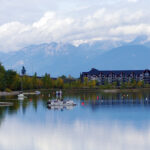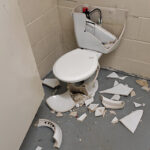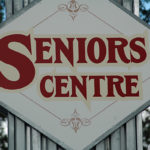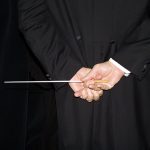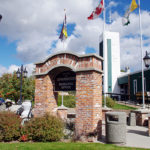Home »

Cannabis edibles, extracts and topicals available soon
The provincial government is now distributing new categories of legal non-medical cannabis products, the Ministry of Attorney General and BC Liquor Distribution Branch announced this morning (Dec. 19).
This begins the second phase of available products since legalization began in October 2018.
The Liquor Distribution Branch (LDB) received its first shipments of products under the new categories on Dec. 18 and is making them available to private and public retailers throughout the province via its wholesale customer portal.
Consumers can expect to see these products on legal retail store shelves in late December, in accordance with LDB’s shipping schedules.
The LDB, the sole wholesale distributor of non-medical cannabis in British Columbia, has registered more than 260 individual products that are within the new categories of edibles, extracts and topicals to make up its initial wholesale product assortment. However, only a small number are expected to be available for retail sale within the first few months of 2020. Availability of products is dependent upon a number of factors, including the ability of manufacturers to meet demand from other markets across Canada.
“The addition of edibles, extracts and topicals represents the provincial government’s commitment to providing safe, regulated non-medical cannabis products to B.C. consumers,” said Blain Lawson, LDB’s general manager and CEO. “A lot of work has gone into procuring these products, and we look forward to working with our suppliers as they continue to introduce new products to market.”
New products registered within the initial release include:
* beverages, such as carbonated and non-carbonated drinks, tea bags, oils and powders;
* products intended to be eaten, such as chocolate, cookies, soft chews and mints;
* vaporizers and cartridges;
* other extracts, such as shatter and hashish; and
* topicals, defined as cannabis-infused products intended to be applied to the hair, skin or nails.
Oils and capsules, which were included in products legalized on Oct. 17, 2018, are now reclassified as extracts. For information about regulations related to the manufacture of non-medical cannabis products and THC limits per product, visit Health Canada’s website.
Products in these newly legalized categories will have the same plain, Health Canada-approved packaging and labeling requirements that are in place for existing cannabis products on the adult-use market. They must be contained in a child-proof package that bears the cannabis symbol, health warnings related to consumption, and the THC and CBD content of the product.
Twenty-four licensed producers have committed to supplying products under the new categories, initially. The LDB will continue to expand its variety of wholesale products as licensed producers make new products available and Health Canada licenses new producers. The LDB is currently working with more than 40 licensed producers to form its entire wholesale product assortment, the ministry reported.
The provincial government recently passed legislation increasing the provincial sales tax (PST) on vapour products from seven per cent to 20% beginning Jan. 1. The new tax rate will be applied at the point of retail sale to all vaping devices and substances used with the vaping device, as well as to any vaping part or accessory. Buying legally from licensed, private non-medical cannabis retail outlets and government-run BC Cannabis Stores is the only way to ensure that a product is regulated by Health Canada.
Dry herb vaporizers (e.g. vaporizers used with dry cannabis) will remain subject to the seven per cent PST rate.
There is currently 11 cannabis stores in the East Kootenay.
See an interactive map of legal cannabis stores in B.C. (as of Dec. 19, 2019).
e-KNOW


